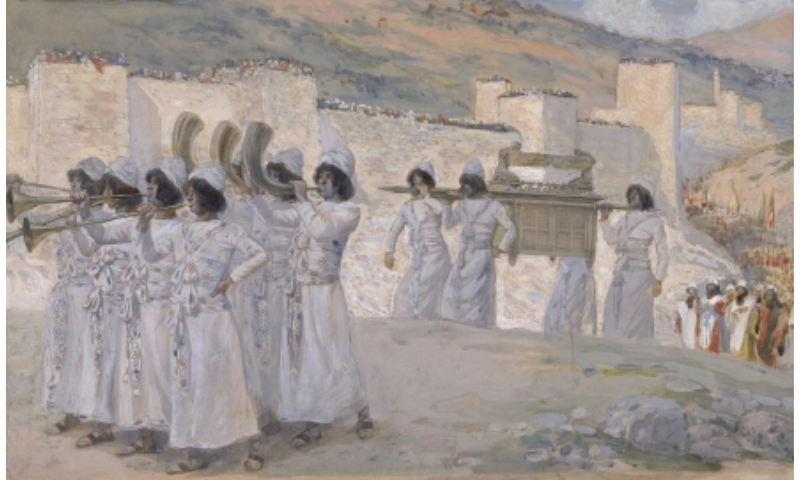Rabbi Shawn Ruby
The Torah.com, Sept. 2022
“The term zichron teruah in Leviticus emphasizes how, on this day, Israel wants to make enough noise to get God’s attention, and remind God of the covenant with Israel.”
In the Torah, the festival we call Rosh Hashanah (New Year) falls out on the first day of the seventh month (Lev 23:24, Num 29:1), i.e., in the biblical calendar, it is not the new year. The Torah says very little about the festival. Other than the prohibition to do labor and the requirement for priests to bring the appropriate festival offering—the standard features common to festival days—the only unique description of the day is that it is a יוֹם תְּרוּעָה “a day of teruah” (Num 29:1) or the more enigmatic זִכְרוֹן תְּרוּעָה “a memorial of teruah” (Lev 23:24).
The common understanding of teruah in this context is that it refers to a type of sound made by the blowing of a horn, traditionally identified with the shofar, the ram’s horn. For example, the Tannaitic midrash on Leviticus, Sifra (Diburah de-Emor 11:1) gloss the word teruah in the Leviticus passage with אֵלּוּ הַשּׁוֹפָרוֹת “these are the shofars.” Similarly, Targum Onkelos in both Rosh Hashanah passages glosses the word with the Aramic יבבא, “sound of a trumpet.”
Yet, the word תְּרוּעָה comes from the root ר.ו.ע, and its core meaning is to shout in alarm or joy.[1] This sense is especially clear from a poetic passage in Job, in the context of joy:
איוב ח:כא עַד יְמַלֵּה שְׂחוֹק פִּיךָ וּשְׂפָתֶיךָ תְרוּעָה.
Job 8:21 He will yet fill your mouth with laughter, and your lips with teruah.
Notably, the majority opinion among Karaites is that the verses associating teruah with Rosh Hashanah are not referring to horn or shofar blasts at all, just to shouting.[2] The common interpretation of yom teruah as a day of blowing the horn is likely based on the biblical description of horn-blowing in the wilderness account. … source


